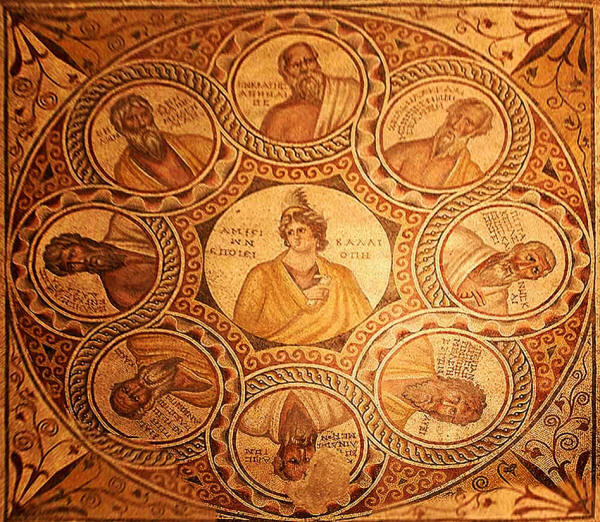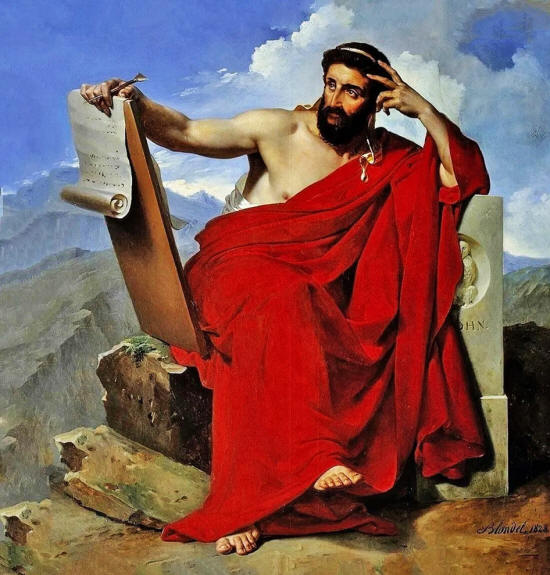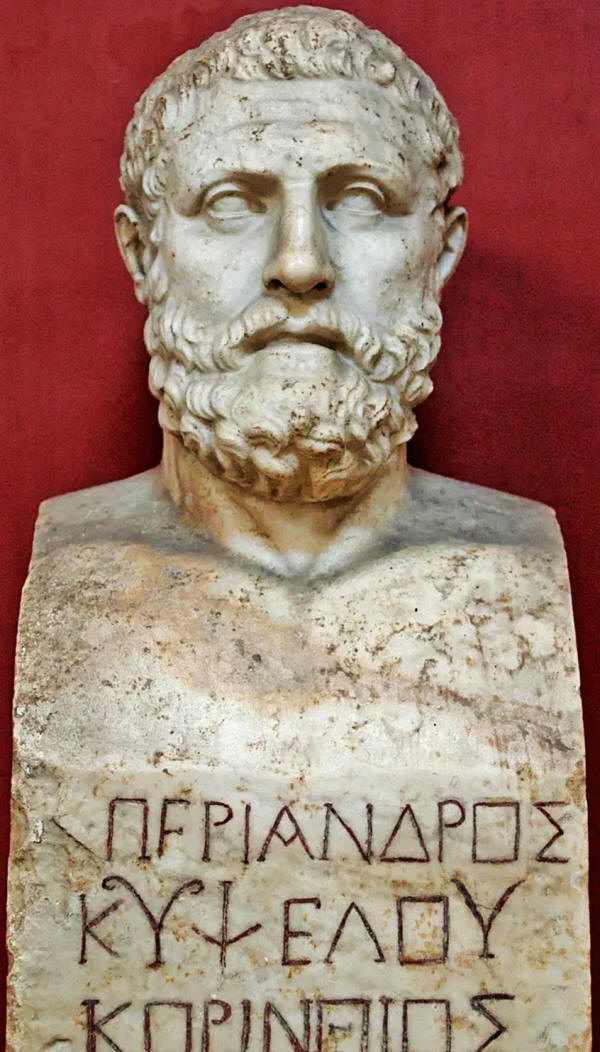|
by Edward Whelan Mosaic of the Seven Sages, also featuring Socrates (top) and Calliope (center)
What's Up with the Number 7?
Ancient Mesopotamians also revered figures of wisdom, and the Greeks, influenced by their predecessors, compiled their own list of legendary sages.
The historian Herodotus, often called the 'Father of History,' was among the first to mention them, though over time, different authors disputed exactly who should be included.
While at least 23 individuals have been suggested
for this honor, a standard list of seven eventually emerged.
These sayings, such as "Know thyself" and
"Nothing in excess", became guiding principles of Greek thought and
culture.
Though some details about their lives remain shrouded in legend, their words and deeds continue to inspire.
One story tells of how he ransomed women captured by pirates, ensuring their safe return to their homeland.
Despite his benevolent acts, he famously remarked,
Was this cynicism, or just the hard-earned wisdom
of a man who had seen too much injustice?
Known for his love of riddles, he once posed a famous conundrum:
The answer...?
His most enduring teaching was,
3. Solon of Athens
(c. 638-558 BC)
Solon of Athens by Merry Joseph-Blondel
After implementing his reforms, he embarked on a ten-year journey, believing that leaving Athens would give his laws time to take root. One tale recounts his visit to King Croesus of Lydia, who boasted of his wealth.
Solon, unimpressed, warned:
Years later, when Croesus was captured by the
Persian king Cyrus and about to be executed, he cried out Solon's
name, realizing at last the truth of his words.
He is said to have died from sheer joy upon hearing that his son had won an Olympic championship.
His famous motto,
5. Thales of
Miletus (c. 624-546 BC)
He famously predicted a solar eclipse in 585 BC, an achievement that astonished his contemporaries.
Once, when mocked for his lack of wealth, he applied his knowledge of weather patterns to predict a bountiful olive harvest, bought up all the olive presses in advance, and made a fortune - proving that philosophers could succeed in business if they wished.
His best-known saying?
He once declared,
Pittacus also introduced a law imposing double punishments for crimes committed while drunk - arguing that those who could not control themselves should be doubly accountable.
Another popular saying attributed to Pittacus was that,
7. Periander of
Corinth (fl. 627 BC)
Periander of Corinth
Under his administration, the city flourished economically and culturally. However, legends paint him as brutal, even murdering his wife in a fit of rage.
His most famous saying,
...suggests that he may have wished he had
planned his own actions more carefully.
Other Wise Men
of Greece
As mythological explanations for the world gave way to practical wisdom and reason, these figures served as transitional icons - replacing heroes like Odysseus with real-world philosophers and statesmen.
Their sayings, often simple yet profound,
continue to be quoted today.
|




